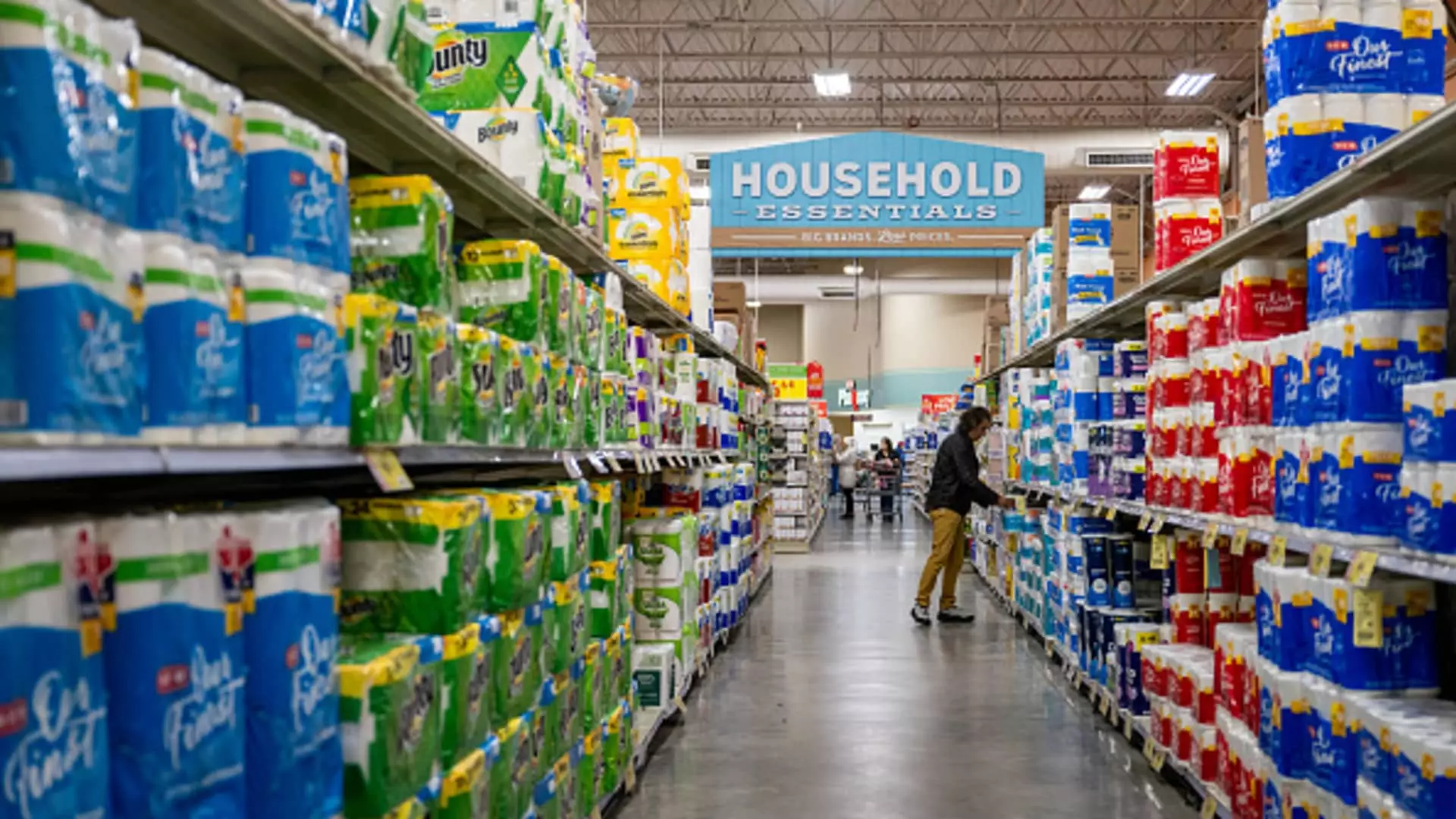Recent policy changes under the Trump administration are positioning tariffs as the hammer of choice in the eternal quest for economic nationalism. These tariffs, intended to bolster domestic manufacturing and bring jobs back to the U.S., will instead serve as a double-edged sword, inflicting substantial financial strain on everyday consumers. As we brace for higher prices on staples like coffee, bananas, and even toilet paper, it’s vital to interrogate the implications of such economic warfare on the consumer’s wallet and the larger picture of American industry.
Surging Prices: A Bitter Brew
The struggle against global trade practices is springing new price increases on items that most consumers take for granted. Take coffee, bananas, and vanilla—key ingredients that many homes rely on for their morning routines or baking adventures. These staples, which are largely unavailable in sufficient quantities within U.S. borders, will likely see their prices hike dramatically. Policymakers may have good intentions, yet there appears to be little understanding of the specific dynamics of supply and demand for these essential commodities. The assertion that tariffs will bring about a resurgence of jobs in America seems increasingly detached from the realities of agricultural and resource management.
Environmental Constraints on Supply
The climate crisis is already shaping food production, pushing certain crops and ingredients, particularly those that grow in tropical climates, out of reach for American farmers. The irony is palpable: while the U.S. seeks to enforce an “America First” policy, nature is enforcing its own version of isolationism. The Consumer Brands Association (CBA) highlights that the U.S. climate limits the growth of crucial food items like coffee and tropical fruits, emphasizing a grim truth: domestic agricultural production is simply not equipped to meet consumer demand. This disconnect threatens to extinguish affordability for a multitude of essential goods.
The Vanilla Crisis: A Spice Gone Awry
Perhaps nothing better illustrates the absurdity of the tariff situation than the impending crisis surrounding vanilla. Already the world’s second-most expensive spice, tariffs of 47% on imports from Madagascar will place this luxury out of reach for many. This is not just about culinary preferences; this impacts the quality of life for many consumers accustomed to certain standards of living. Vanilla is a core, beloved ingredient. When your vanilla extract climbs in price, it’s not simply the cost of baking that escalates; it speaks volumes about how these trade policies can affect the fabric of our everyday routines.
Household Staples at Risk
But the repercussions extend beyond gourmet desserts. Everyday household staples, from toilet paper to shampoo, are also poised to balloon in cost due to increased tariffs on raw materials. The CBA notes that essential manufacturing inputs like wood pulp, bamboo fibers, and palm oil could sharply rise in price; affecting families trying to balance a budget. This amplifies an unsettling reality: tariffs might be geared toward international trade concerns, yet the fallout hits closest to home.
Markets React: A Jarring Disconnect
Financial markets are notoriously fickle, and the immediate response to these tariff announcements exemplifies this phenomenon. As stocks of those consumer staples surged, it seemingly provided an ironic safe harbor for investors abandoning riskier ventures. How jarring it is to see Procter & Gamble and Coca-Cola’s stocks rise even as the average American prepares for financial anguish. Such market responses highlight a disconnect; investors are benefiting from a system that exploits vulnerabilities in the consumer landscape.
As we wade through this era of economic nationalism, one can’t help but question whether our policymakers are fully aware of the societal costs of their economic warfare. It appears that the path to rebuilding American jobs must reconsider the complexities and realities of our interconnected global economy. Ultimately, we face a choice: continue down a path that might lead to further economic unraveling or rethink how we approach trade, supply chains, and consumer affordability in the future. The true measure of success will not be returning jobs to U.S. soil but ensuring that the foundational elements of our daily lives remain accessible and affordable for all.

